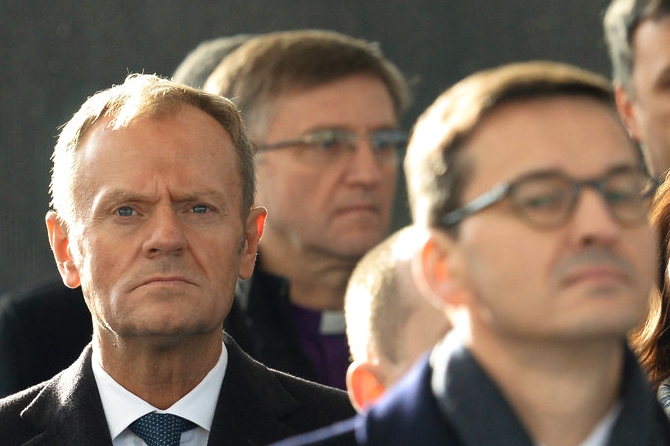In a development that could be seen as a historical irony, Donald Tusk, frequently referred to as the “first European in Poland” and a leader influenced by Germany and the EU, might be the one to halt or at least decelerate the federalist march in Poland, previously accepted by both governments under Prime Minister Mateusz Morawiecki.
Despite his EU-skeptic rhetoric, Morawiecki’s government has, often covertly, supported EU federalism, as noted by Jacek Czaputowicz, a former foreign minister who closely observed Morawiecki’s European policy.
Scrutinizing Morawiecki’s policies reveals a deep acceptance of conditions set by Berlin and Brussels, especially during the construction of the EU’s recovery fund, which included Poland’s National Recovery Plan. This acceptance included controversial moves like allowing the European Commission to interfere in internal matters of EU member states, financial coercion, imposition of EU taxes, and the EU Commission’s debt incurrence, which ultimately falls on the taxpayers of member states.
Moreover, Morawiecki agreed to impose on Poland unfavorable conditions set by the European Commission, including milestones like taxes on combustion engine cars and the costly Fit for 55 initiative, driving towards a more federalist and expensive future for Polish citizens.
Meanwhile, Donald Tusk has shown a lack of enthusiasm for the EU’s federalization. He recently expressed support for “progressive European integration” but remains critical of “naive integration enthusiasm.” Significantly, members of Tusk’s Civic Platform (PO) party, like those from Morawiecki’s Law and Justice (PiS) party, voted against adopting treaty changes in the European Parliament. These changes, if enforced, would have led to majority voting in 65 key areas, significantly advancing the EU towards a superstate and reducing the room for sovereign national states.
In conclusion, the idea that Tusk, a rhetorically EU-enthusiastic but pragmatically cautious opponent of EU federalism, might replace Morawiecki, a rhetorical EU skeptic but an actual supporter of EU federalism, seems almost inconceivable but is now a topic of considerable discussion in Polish politics.





